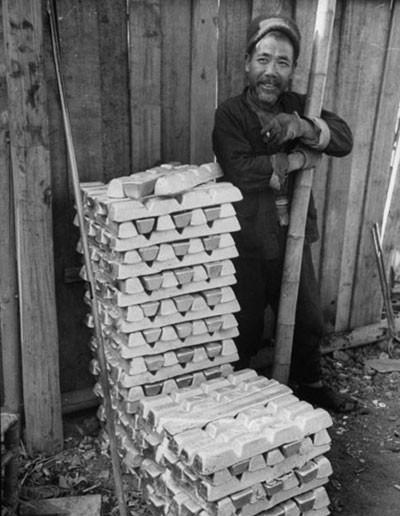As we all know, chiang kai-shek took away a large amount of gold and national treasure-level cultural relics when he defeated the mainland. According to a report, Chiang Kai-shek brought about 7 million taels of gold to Taiwan that year. Chiang Ching-kuo also mentioned in his diary the transportation of gold from Shanghai to Taiwan, "Today my father sent me to Shanghai to visit Mr. Yu Hongjun, hoping that he would transfer the central bank cash to Taiwan for security." ”
These are amazing possessions, but compared to people, all of this is less important. Before Chiang Kai-shek went to Taiwan, he "invited" a large number of mainland talents to go to Taiwan, and some agreed to it, and some refused, for example, Du Yuesheng refused on the grounds of going to Hong Kong for medical treatment. Of all the people Chiang Kai-shek brought to Taiwan, two were very special, but few people knew.

The first is the last generation of Yan Sheng Gong, the 77th generation grandson of Confucius Kong Decheng. The so-called YanShenggong refers to the hereditary title of Confucius's eldest son, which began in the Song Dynasty and continued until 1935, when the National Government changed the title of Yansheng Gong Kong De to become the official of the Dacheng Most Holy Ancestor. Kong Decheng was born on February 23, 1920, on the fourth day of the first lunar month of the ninth year of the Republic of China.
In order to prevent accidents, the Beiyang government sent troops to surround the delivery room, set up a post in five steps, and also sent a general to sit in town, and also let Qu Yingguang, the governor of Shandong Province, lead the worship officials of Meng Qingtang, Yan Shiyong, and Zeng Fanshan to supervise at the same time. The reason for attaching so much importance to Kong Decheng is self-evident. After Chiang Kai-shek brought Kong Decheng to Taiwan, he appointed him as the official of the Dacheng Most Holy Ancestor, and Chiang Kai-shek used this to prove that he was legitimate.
The second is Zhang Enbo. Maybe everyone has no concept of this name, he is the sixty-third generation of the Taoist ancestor Zhang Tianshi. Taoism is a native religion in China, it is in the concept of ghost worship, based on the huang and old Taoist thought, followed by the Warring States since the evolution of the immortal fangshu. Taoism takes the "Tao" as the highest belief, and the "Tao" is formless and imageless, and it gives birth to heaven and earth and all things. The manifestation of the Tao in man and in all things is "virtue." Taoism believes that "the gods and immortals are both the embodiment of the Tao and the models of enlightenment." The purpose of the gods and immortals is to save the world. Therefore, Taoists believe in morality and worship gods and immortals. ”
Chiang Kai-shek was very obsessed with traditional Chinese culture throughout his life, and although he converted to Christianity after middle age, his thinking was still based on traditional Chinese culture, and he claimed to be committed to obeying and inheriting the Confucian Taoist system. For example, when Chiang Kai-shek was educating Chiang Ching-kuo, he asked him to read books such as the Analects, the Complete Works of Wang Wencheng (i.e., the Complete Works of Wang Yangming), the Zeng Wenzheng Gongjia Shu, the Records of Recent Thoughts, and the Sayings of Sun Wen.
Throughout Chiang Kai-shek's life, he admired traditional Confucian culture, which can be seen everywhere in his speeches, diaries, and conversations. However, in terms of traditional philosophy, Chiang Kai-shek had great respect for Wang Chongyang and presented himself as the successor of Wang Xue. In Chiang Kai-shek's view, if the direct descendants of Confucius and the Taoist celestial masters were brought to Taiwan, it would be very helpful for them to promote Chinese orthodoxy, which is incomparable with gold and national treasure-level cultural relics.